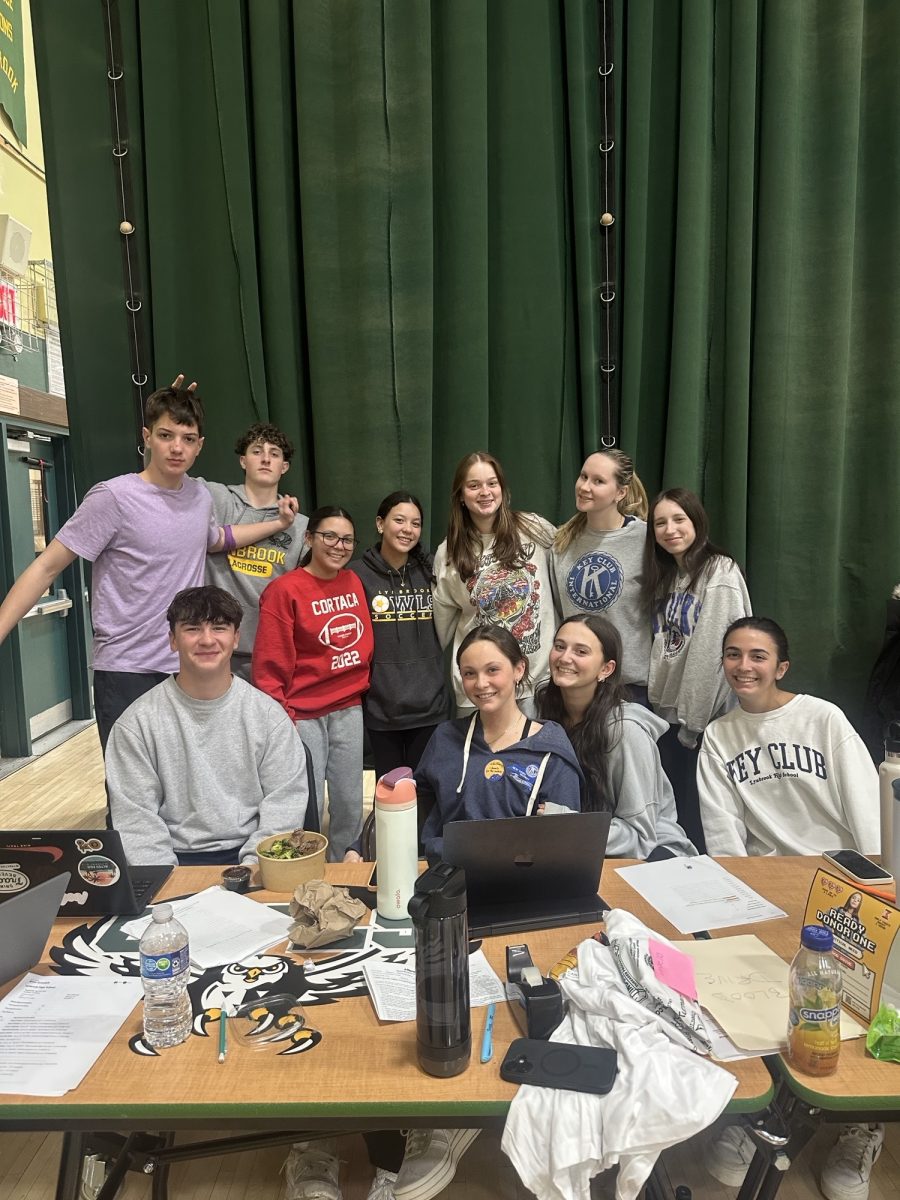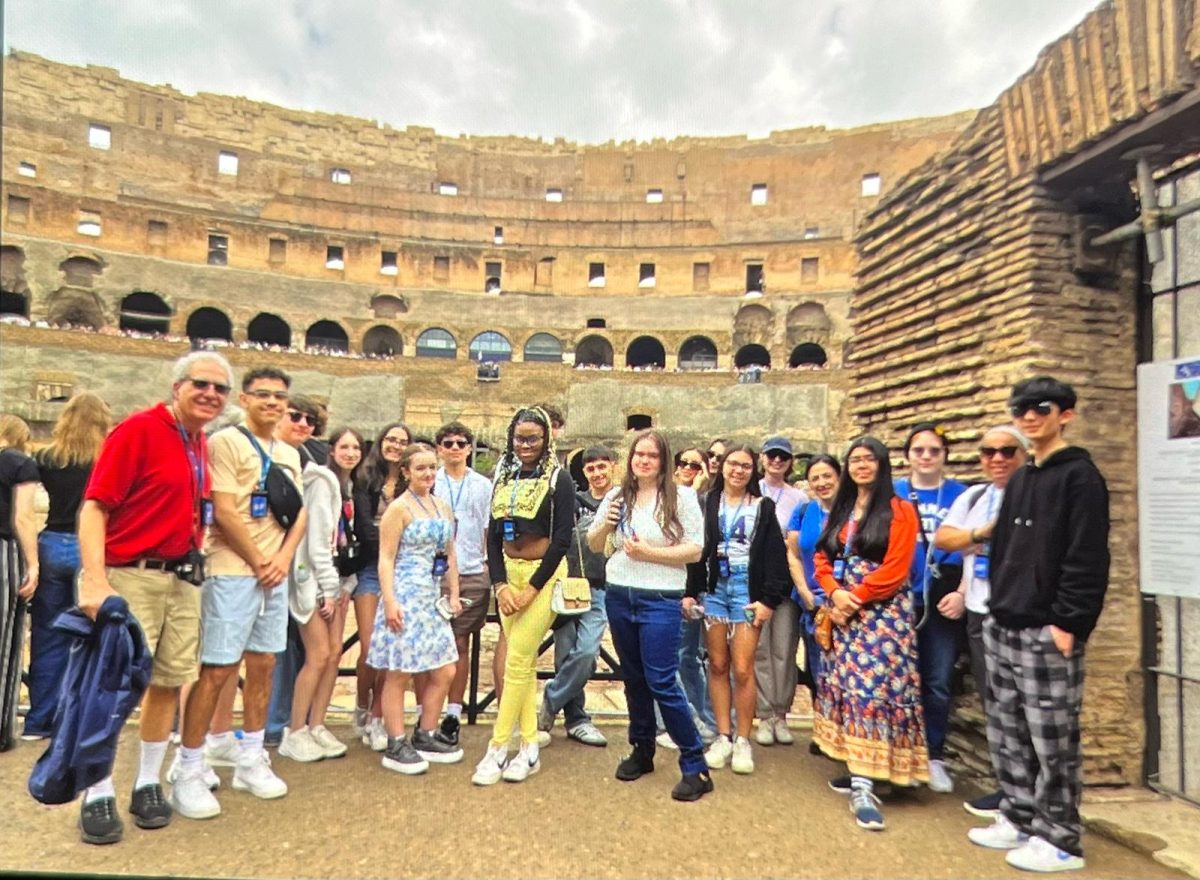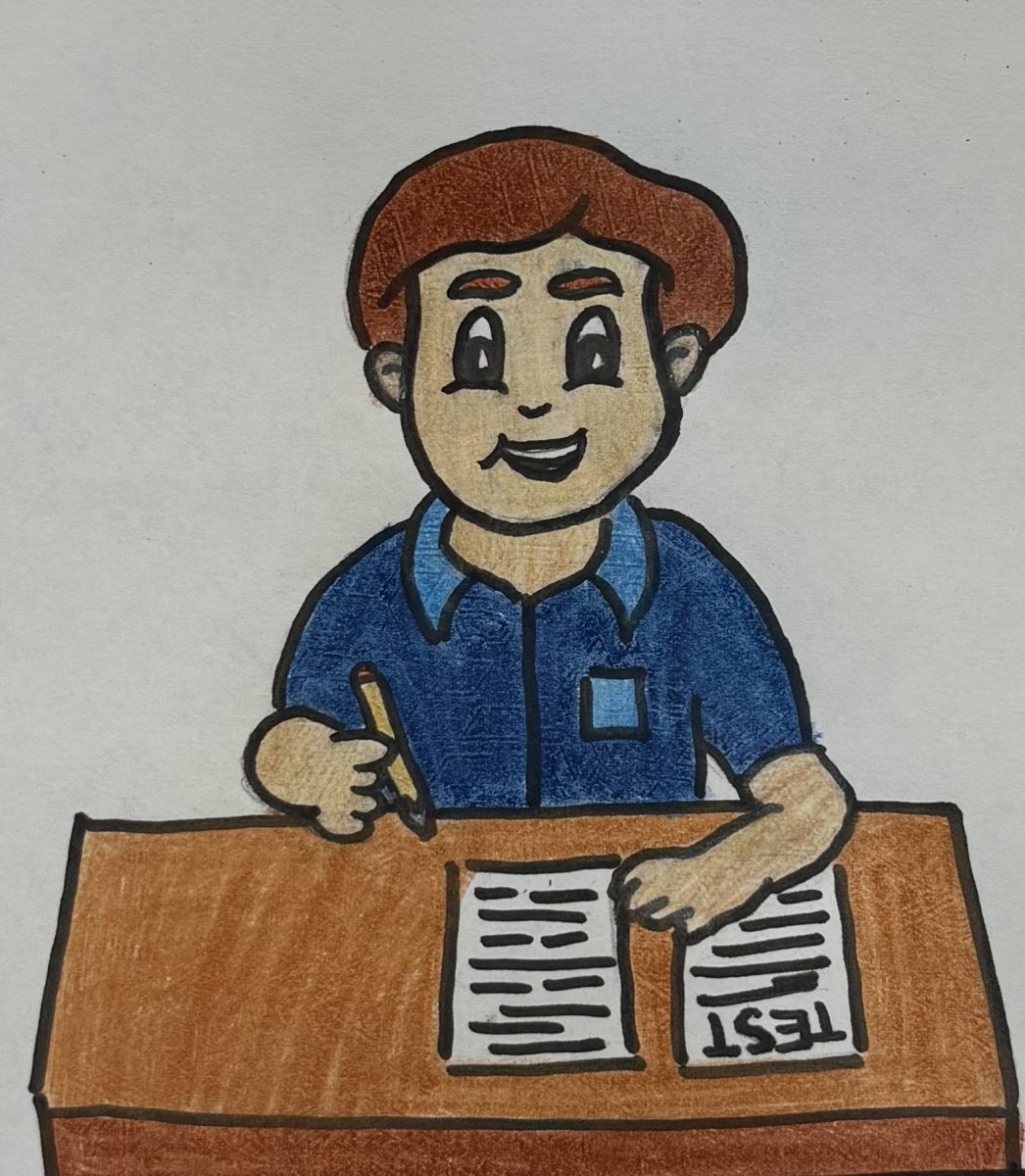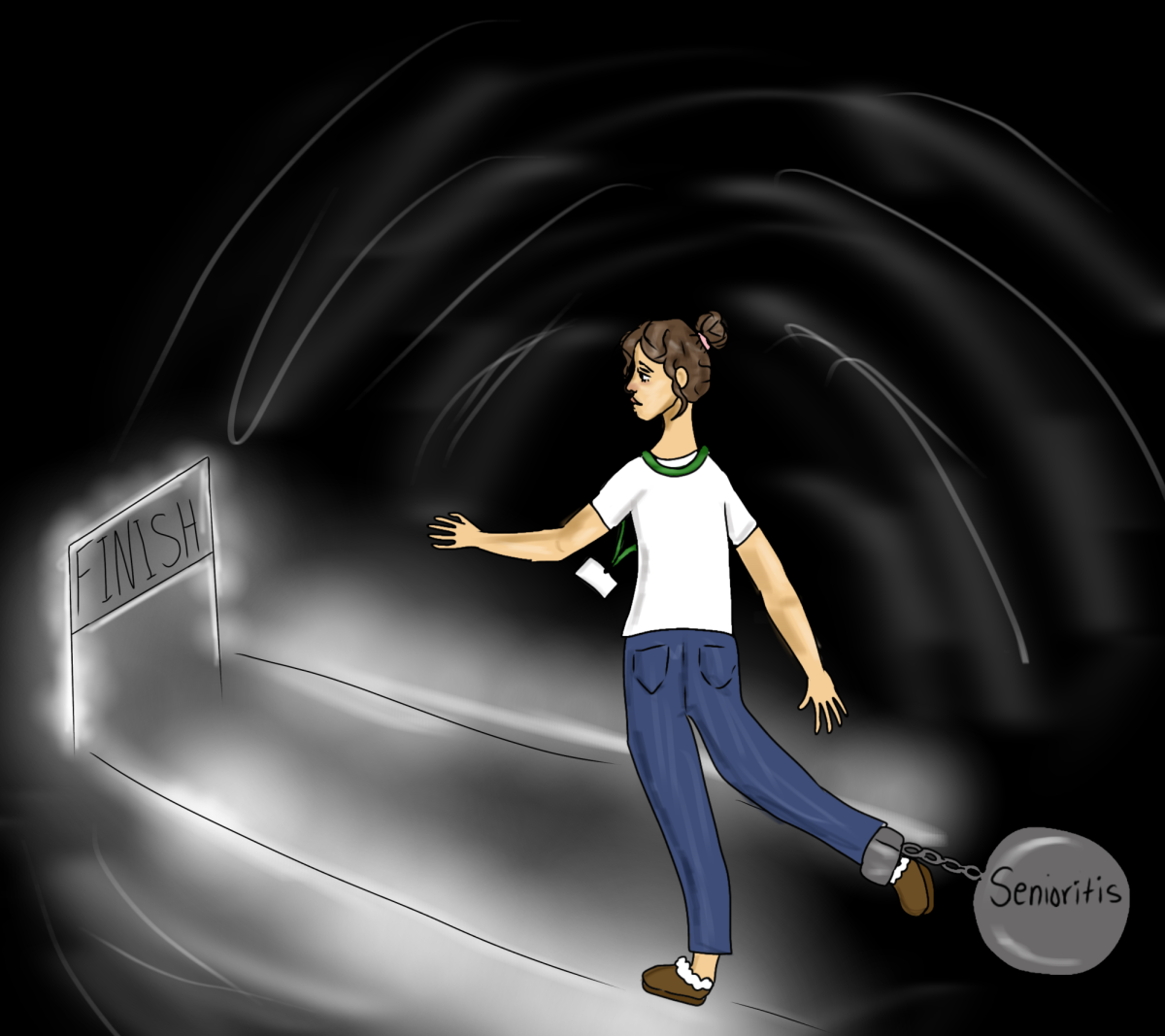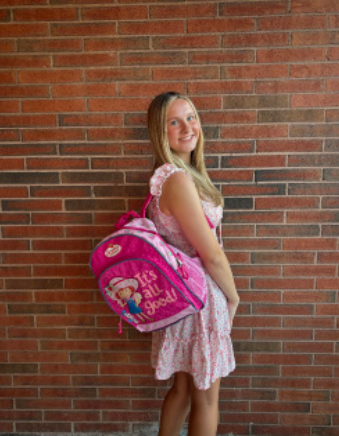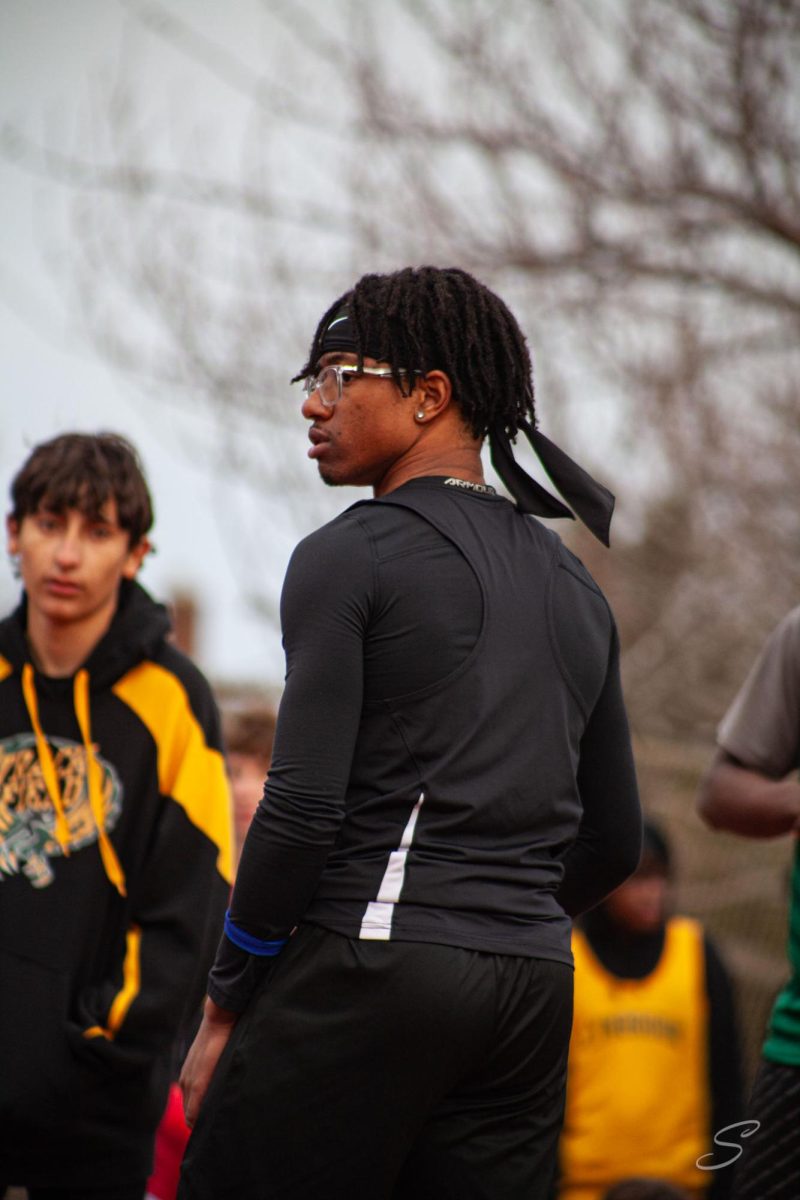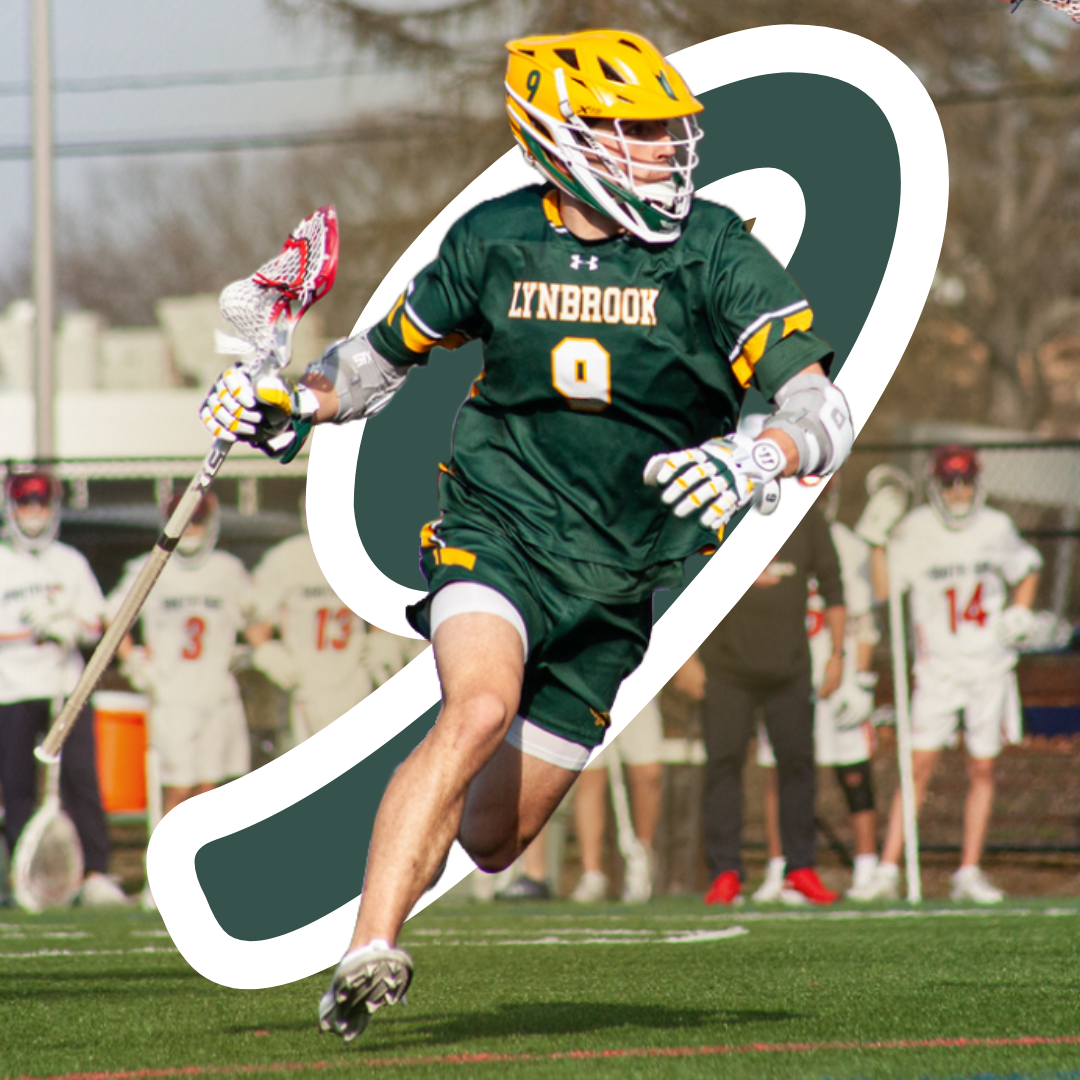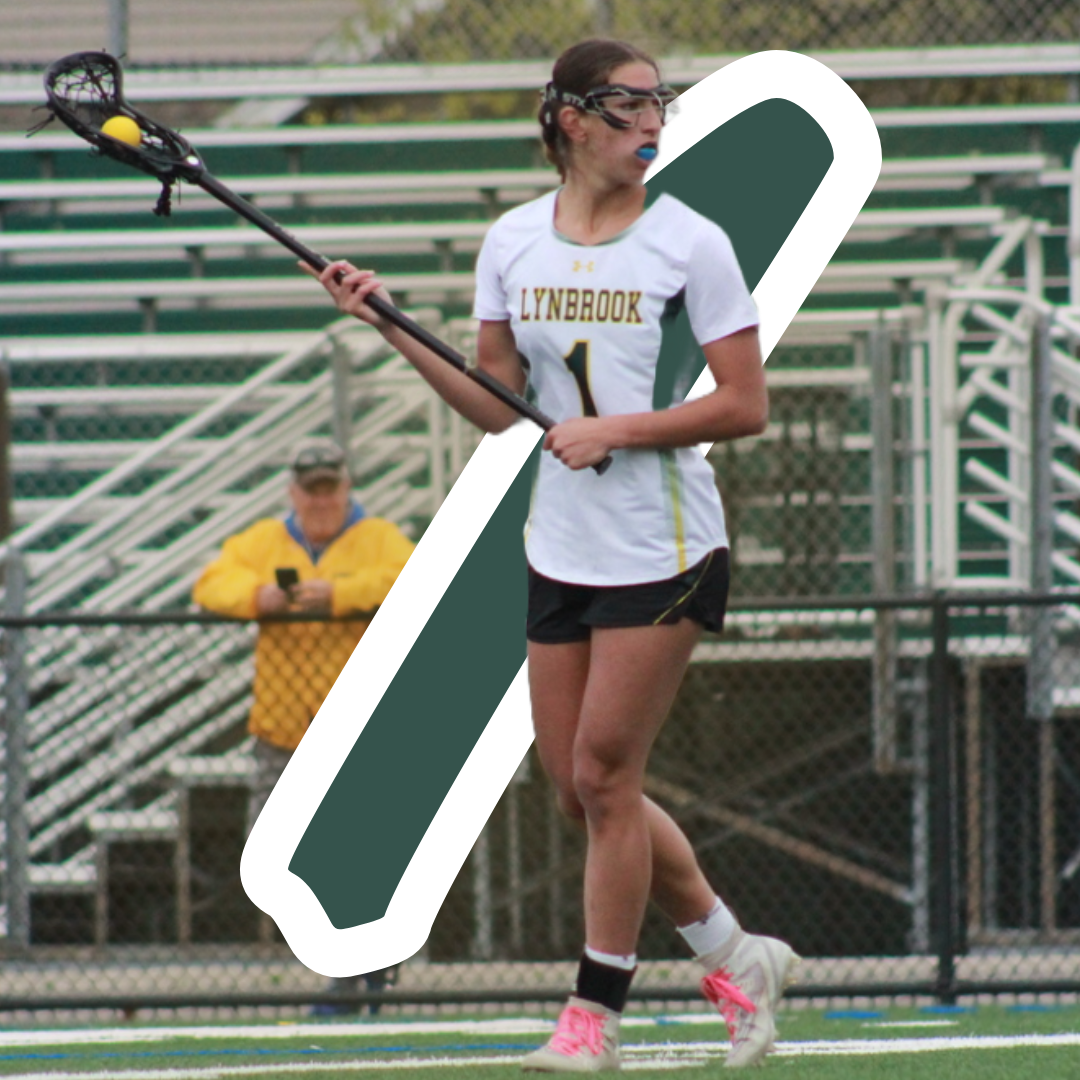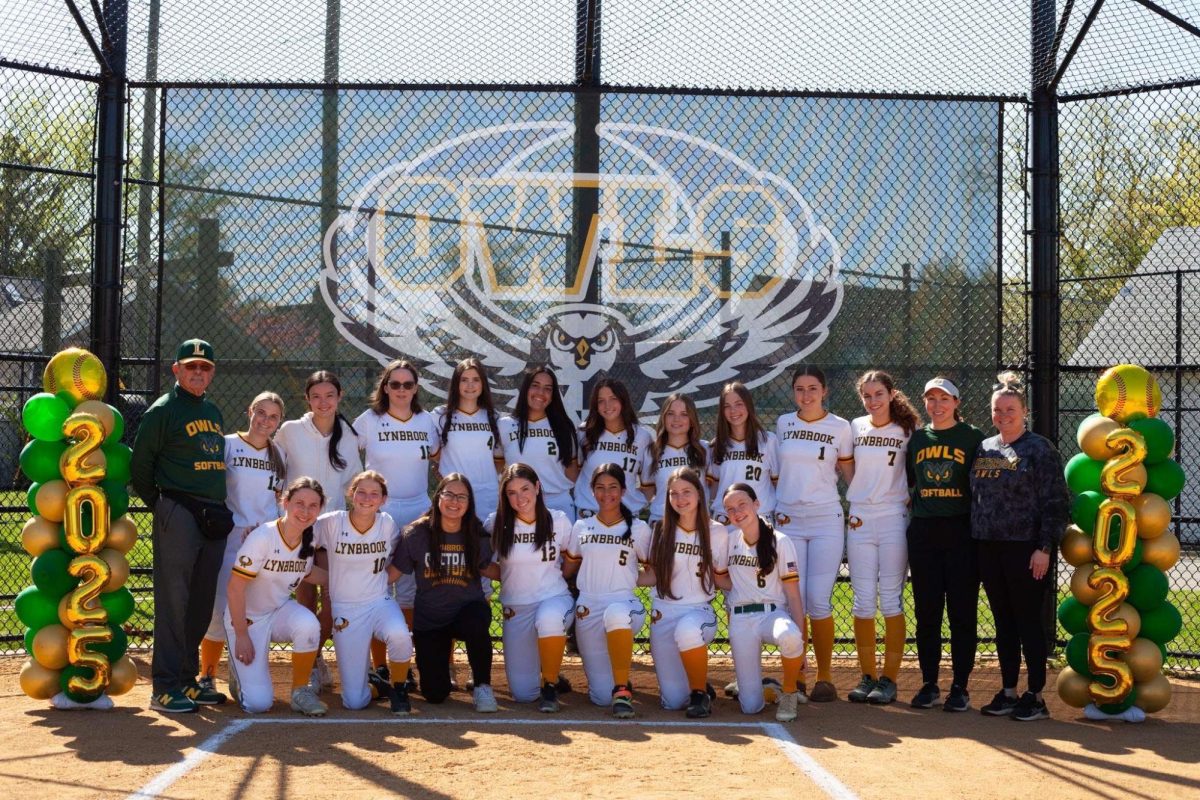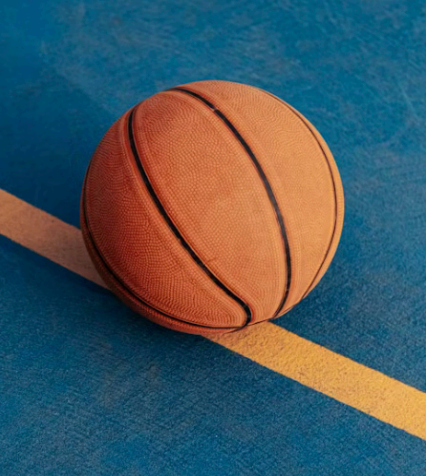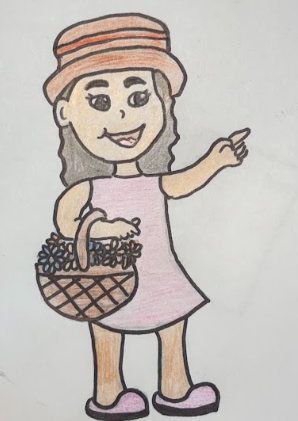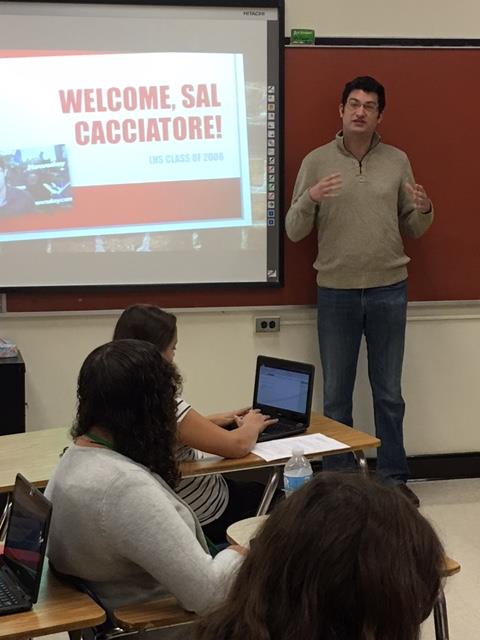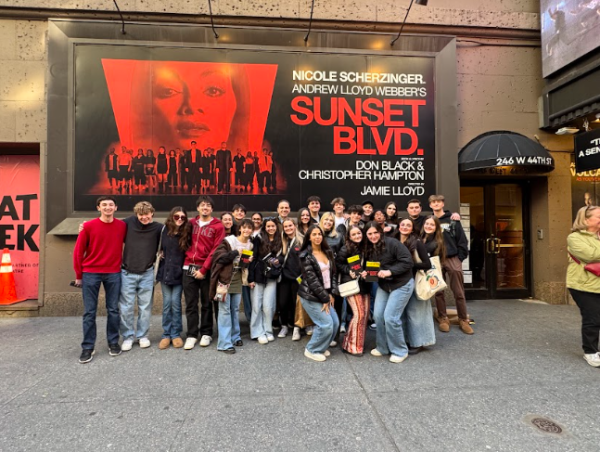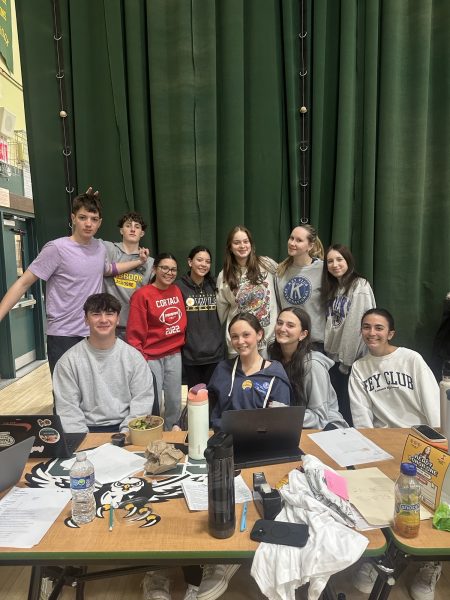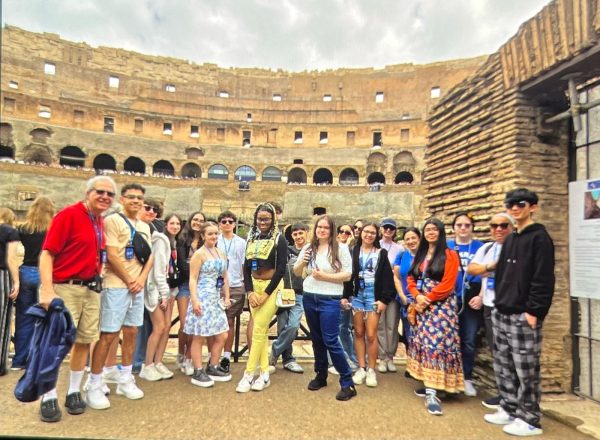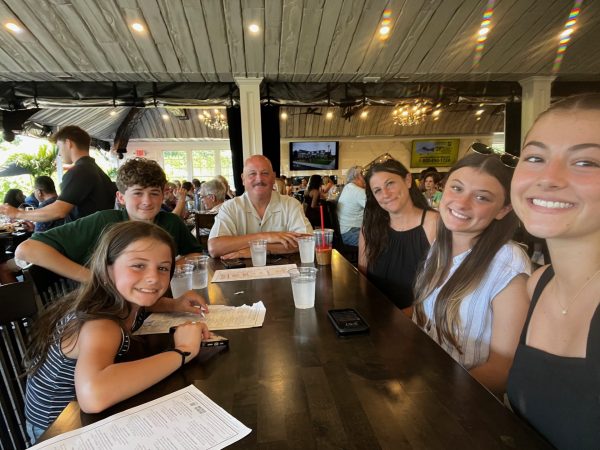Journalist Visits Journalism
Sal Cacciatore, Newsday reporter and LHS Class of 2008, visits with the Journalism class
Sal Cacciatore visited and spoke to Jessica Sanders’ journalism class on September 28. Cacciatore is a Lynbrook class of 2008 alumnus, who took journalism with Sanders as a senior 10 years ago. Currently, he works for Newsday as a sports writer. He covers a variety of events ranging from local tournaments to professional teams.
Cacciatore said that he has always loved writing and sports, and he realized he wanted to be a journalist when he was 11 or 12 years old. He received a BA in history from Hofstra University. He started a sports blog while he was attending college, which was discovered by a group that was putting together a network of sports blogs, and they reached out to him to invite him to be a part of it. He said this was a great experience, and he had the opportunity to work with a few Fox Sports affiliate blogs. He advised the class to always put out their best work because one can never know who is looking. He attended law school for one year, but he realized that he was more passionate about journalism, so he left law school and got a job as a sports writer for Newsday.
Cacciatore gave advice to the class on how to improve their writing and find a career in journalism. Daniel Dalrymple, a sophomore in the class, said, “I thought Sal was inspiring because now I know I can be a journalist.” Cacciatore explained that the more one writes, the better he/she will become at it. He also stated that being an avid reader has enabled him to pick up good writing skills without even realizing it.
Cacciatore went on to talk about the struggles of a writer and how it can be hard to work in the field of journalism. “[His visit] helped me realize that writers have ups and downs, and you can’t always get the story you want or the job you want,” said Victoria Medina, a freshman in the class. Despite this, Cacciatore encouraged Sanders’ students to continue writing, saying, “You can’t be an expert on everything, but if you’re passionate about it, the quality of the work will be better.”
He described his typical days at Newsday as either being in the office answering phones and speaking to coaches for stories or out at events covering stories. He explained that local/high school coverage keeps Newsday afloat, as it is news that nobody else is covering. When covering local sports events, he must talk to coaches about which players to keep an eye on, take notes, and record video, then find a place to write up the story and send it in to be published.
Cacciatore described covering professional events as a very different experience. He said professional events can be easier to cover, as they are more resourceful and give the reporters stats and replays. When covering high school games, he is the main source, so he must be there to see everything that happens, and find more information and sources. He said this can make for better reporting, and that it is good to have to dig for information. When covering professional events, he must get to the games hours before they start and make sure to talk to people and get interviews in case the game is not over before the deadline. He explained that deadlines are not as forgiving, and sometimes, if the game is not over by the deadline, he will have to write up a feature story so that he has something to send in. He said that the traditional sports story has died out, and stories that are just overviews of the event are not as appealing to readers as feature stories. Freshman Victoria Donovan, a student in the class, said, “He made [journalism] sound very interesting and fun. When he talked about the hours he works, it sounds very interesting.” He told the class that if they write stories that they would want to read, they will be more likely to compel and interest other readers.
He spoke about how journalism is a fast-paced industry that is always changing. He said that while the industry is shifting over to online and video rather than print, journalists will always be needed. Freshman Greta Kiefer, another student in the class, said, “I think [technology and social media] is having a positive impact [on journalism] because it makes it easier to spread information, and it gives important notifications to the journalist’s followers and friends.” Journalists do not just write, but they must also take videos and pictures for stories that they are covering. Phones become a tool of the trade. Social media is very important, as it is a good way to connect with others in the field, promote oneself, and put one’s work out into the world.
Cacciatore gave many tips for success in the industry of journalism. He advised the class to read and write as much as possible. “It is important to read good journalism,” Cacciatore said, “and to be able to see writing techniques good journalists use and incorporate them into your own work.” He advised the class to find their passions by reading varieties of news and finding what they are interested in. He said when opportunities arise that will give one good exposure, one should write for free, but he cautioned students that it is important to be careful so as not to be taken advantage of. He said the class should have an end goal in mind of a field they are interested in, and broadly write in that field, so that when that area is hiring writers, they will see their work and see them as an experienced candidate. He also said that internships are very important, and it is important to go into internships relevant to what one wants to do so one can get experience and possibly a job.
Donovan found Cacciatore’s words of wisdom to be quite helpful, and really took a good deal away from his visit, saying, “I would consider a career in journalism because [journalists] get to experience a lot of cool things, like going to big sports games and concerts and Broadway shows.”
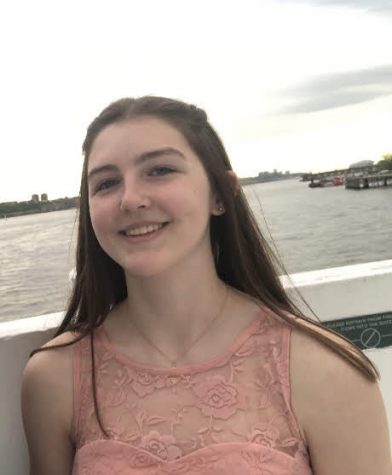
I am the editor-in-chief for Horizon.com and a member of the Class of 2021 at Lynbrook High School. In my free time, I like to swim, run, and play music.
I am a sophomore at Lynbrook High School, and a contributor to Horizon. I enjoy watching and playing sports with friends.
I am a freshman at LHS. I was born in Englewood, NJ, and I grew up in Lynbrook. I enjoy writing, and I'm considerably extroverted.




